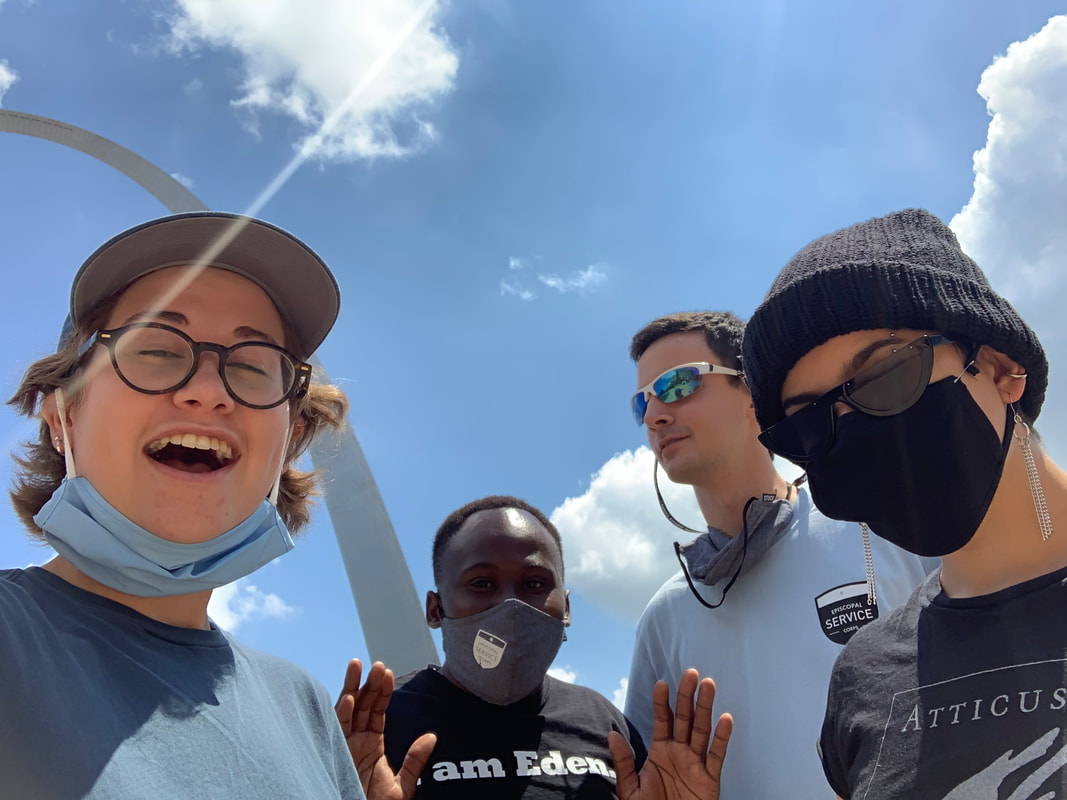|
--Maria Maguire
Because of my role as the Apprenticeship & CSA (Community Supported Agriculture) Coordinator at EarthDance Farms, I was asked to speak about Community Supported Agriculture at a Saint Louis University freshman seminar on globalization. This opportunity helped me to learn how the good food movement is challenging the empire of agribusiness. I joined the class in a field trip to the Donald Danforth Science Center, and I got to meet some folks from Fair Shares, a Combined Community Supported Agriculture operation. This was a really cool way for me to apply what I’ve been learning in our Jesus and Empire class at Eden Theological seminary. My Deaconess Anne housemates and I have been learning the ways in which Jesus resisted the oppression and injustices of the Roman Empire. As Christians looking to follow Jesus in our own day and age, my housemates and I have been examining the ways in which we can challenge oppressive systems of empire in America. As a group we have learned about issues of racial inequality an economic injustice, in particular. My placement site has given me the opportunity to view justice through the lens of food. When I presented at SLU, I spoke about Community Supported Agriculture (CSA), which is a farming model that was brought to the US from Japan in the 1990s. CSA makes it possible for city or suburban residents to enjoy fresh produce grown locally by regional farmers. It is an effort to give people direct access to local farmers, which, in turn, promotes social and ecological justice. People pay up front for an entire season’s worth of CSA shares. When a person invests in a CSA share, always at the beginning of a season, she is taking on financial risk alongside her farmer. She says to the farmer, farming is risky business. Some crops will do well, and others won’t. I know it’s hard to make a profit and run a farm. But I believe in what you are doing. I believe in the power of local food, and I want to take on that risk with you. But why take on that risk? Why is local food important, and why would I invest in a local farmer? Investing in a local farmer is a way to resist empire. When you know your farmer, you have access to important information; who grew this food, and were they fairly compensated? Did the farmer responsibly use natural resources in the process? What kind of chemicals and how many, if any, were employed to grow this food? Growing food always involves social and ecological input. Think of bananas that the U.S. imports from South America. Was there child labor involved? How much pesticide was used? I haven’t a clue; do you? It’s very difficult to know, since the growing happened so far away. But when the growing occurs close to home, you can know what is going on. You can know who grew the food, and what resources they used. You have an awareness of the social and ecological input. When you get to know your farmer, you can support a just way of raising food, and you can help resist an unjust system of food.
1 Comment
|
Categories |
|
Mailing address:
DAH c/o Diocese of Missouri 1210 Locust St. Louis, MO 63103 |
(c) 2014 - 2020 Episcopal Diocese of Missouri
|


 RSS Feed
RSS Feed